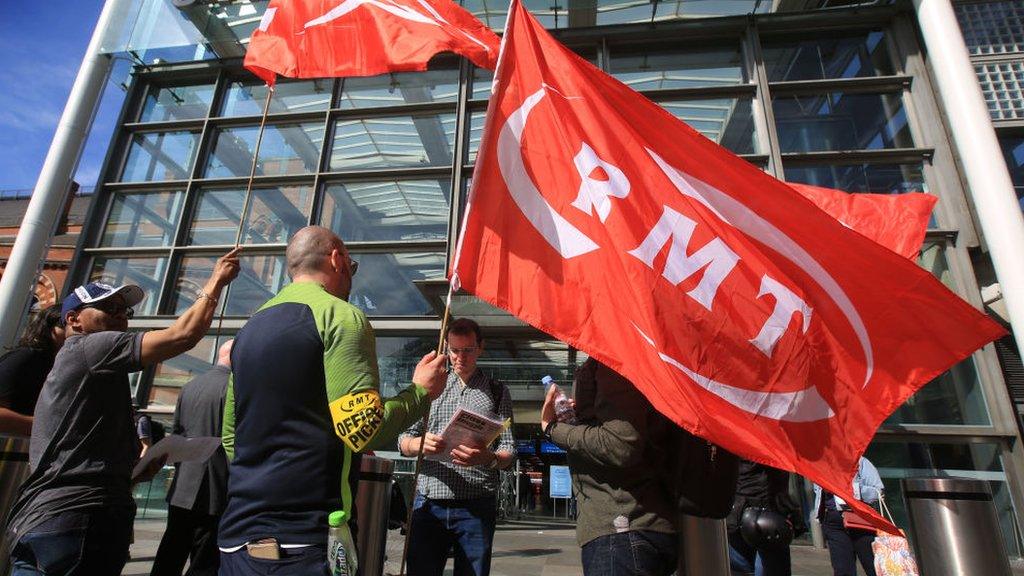Tube strikes begin in London
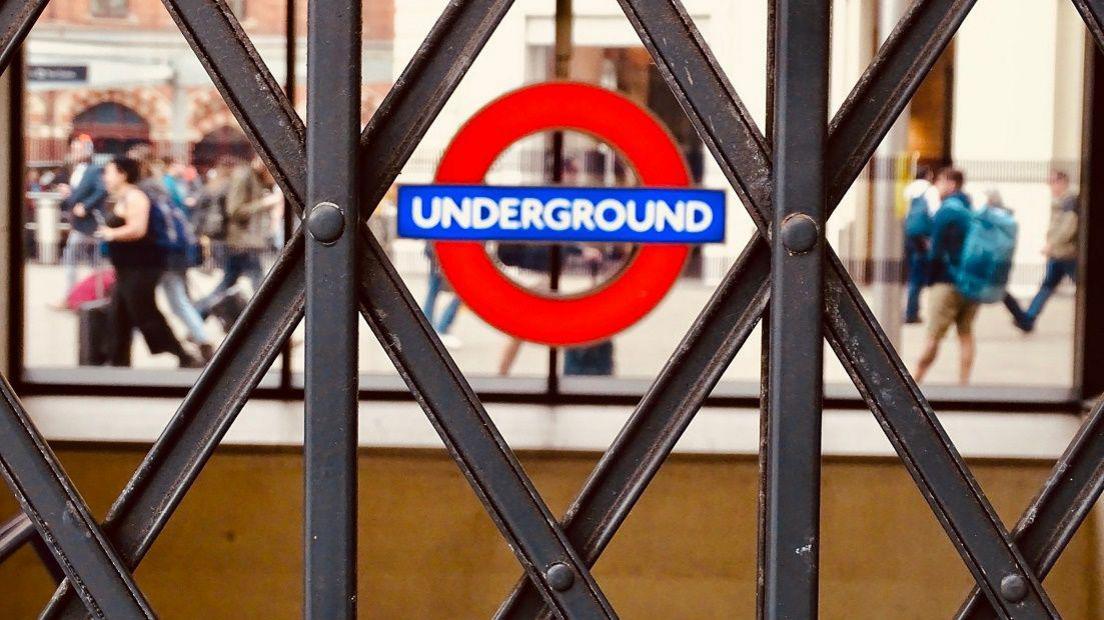
A five-day tube strike is underway in London
- Published
Tube strikes have started in London today.
The strike action, which is expected to last for five days, means they'll be little to no train service on the London Underground between now and Thursday.
Lots of people will be affected, including people who live and work in the city and children who use the tube to go to school.
The last tube strike to across the whole network was in March 2023.
The latest Newsround stories
- Published5 hours ago
- Published3 days ago
- Published1 day ago
Why are the strikes happening?
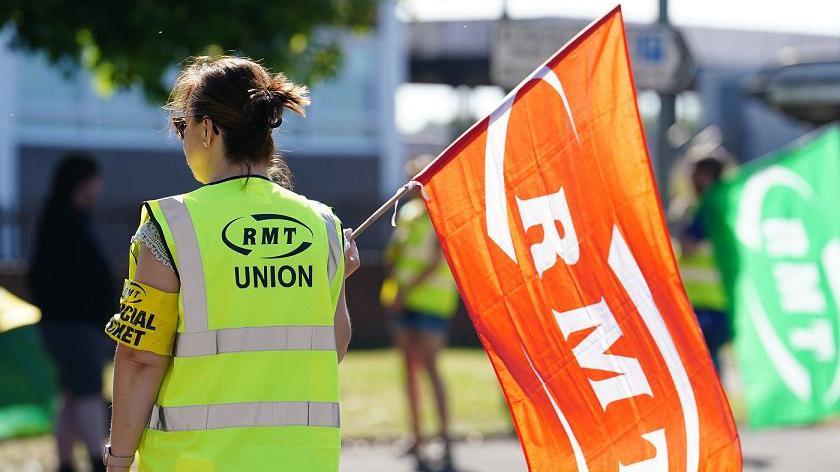
The RMT is calling for a 32-hour week for its members
London Underground staff are striking over their current pay and working conditions.
The National Union of Rail, Maritime and Transport Workers (RMT), which is a trade union representing transport workers, says the early and late shifts (shifts starting early in the morning and shifts ending late at night) its members are doing are having a negative effect on their health.
The union has asked Transport for London (TfL), which looks after most of the transport network in the capital city, for a reduced 32-hour week for its members.
What does TfL say about the strikes?
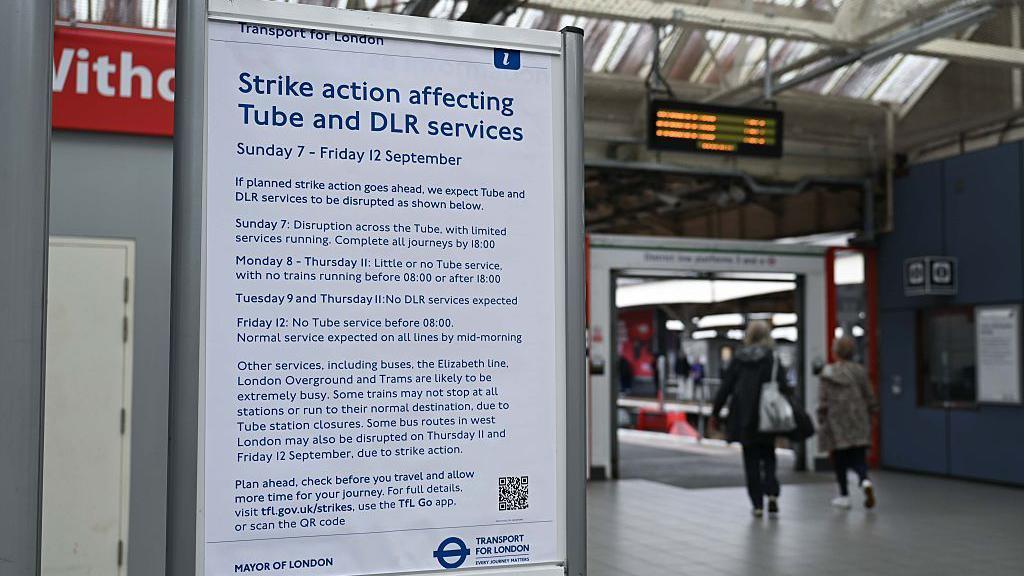
Transport for London (TfL) has said the RMT's request for a 32-hour week is "neither practical and affordable" and would cost hundreds of millions of pounds to fund.
It has offered the RMT union a 3.4% increase in pay for the workers.
"We are committed to ensuring our colleagues are treated fairly and, as well as offering a 3.4% pay increase in our ongoing pay discussions, we have made progress on a number of commitments we have made previously," A TfL spokesperson said.
"We welcome further engagement with our unions about fatigue and rostering across London Underground, but a reduction in the contractual 35-hour working week is neither practical nor affordable."
Which tube services have been affected by the strikes?
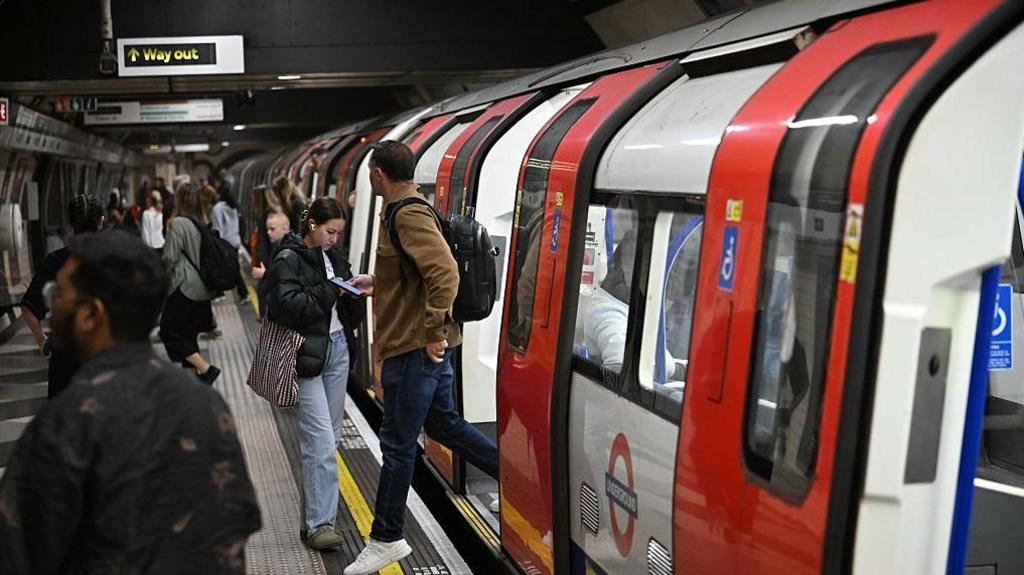
Train services across the whole of the London Underground network will be limited because of the strike action.
The underground is expected to open later on Friday 12 September, at 8am, and services will return to normal from then onwards.
There is also a separate dispute on the Docklands Light Railway (DLR) on Tuesday and Thursday, which means they'll be no DLR train service on those days.
The Elizabeth line and Overground will run as normal during the strike period, but underground trains are expected to be a lot busier, along with buses and roads.
Why do people strike?
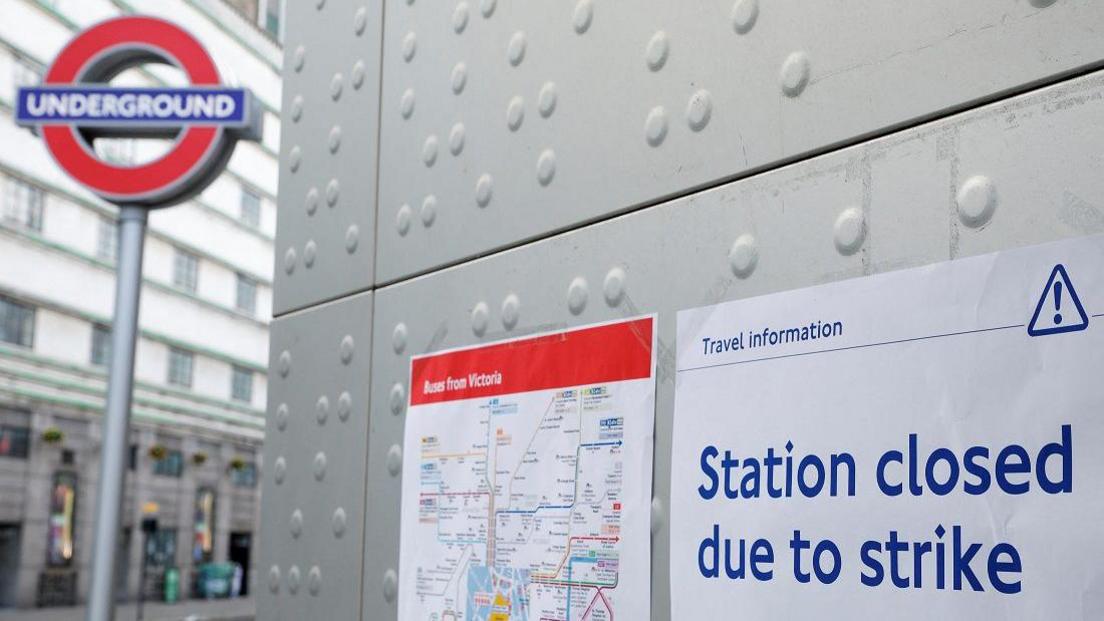
A strike is when a group of workers come together and agree to stop working.
Employees do this when they want to protest against something they think is unfair where they work.
Strikes often happen because workers want those in charge to listen to what they want.
Workers go on strike for a number of different reasons. They may agree to stop working to try to:
Get improvements where they work
More money
Make changes to their working hours
Stop their wages going down
Or because they think their company has been unfair
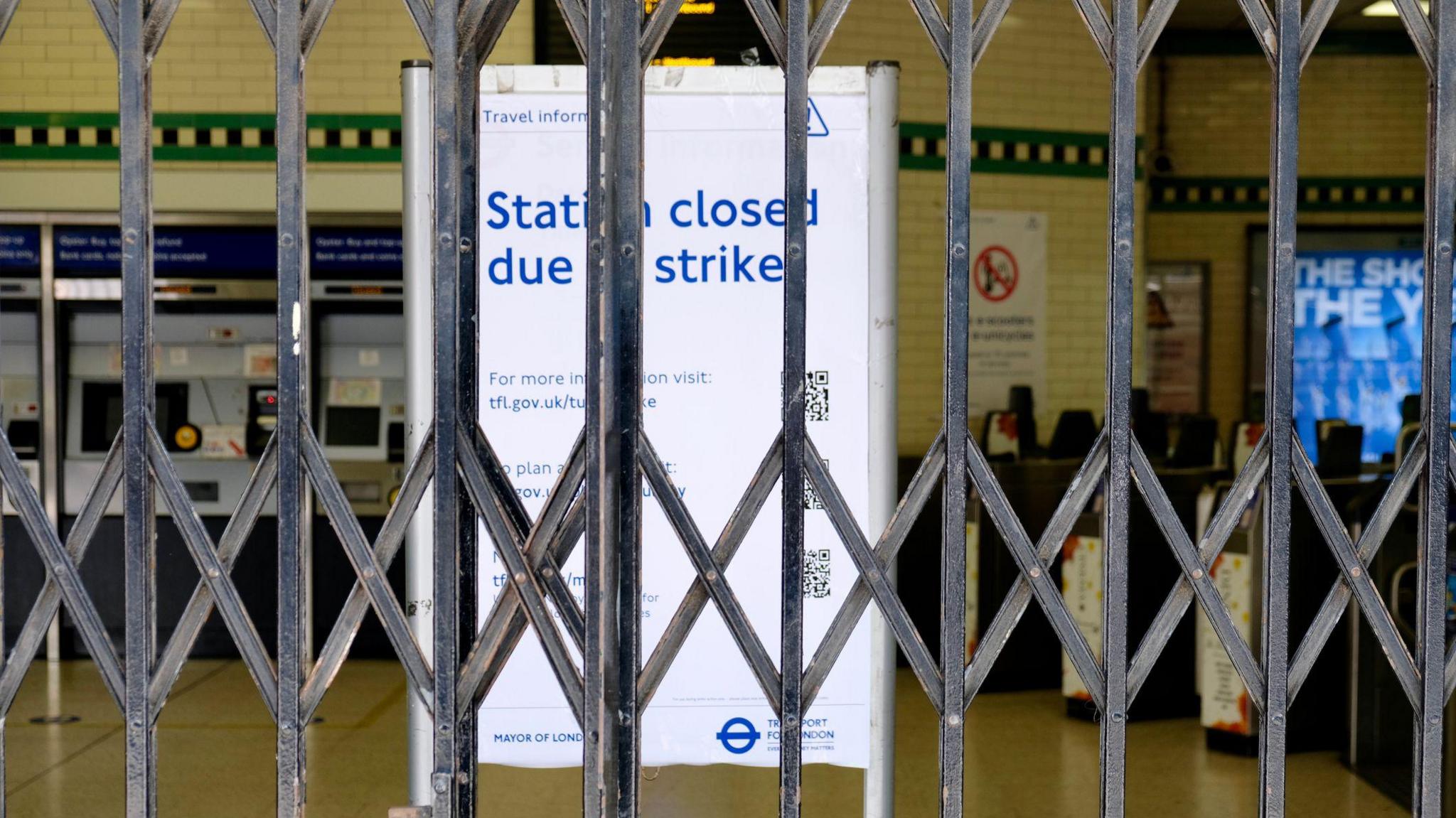
Employees hope that by stopping working, the people who make decisions about issues that affect them - such as pay or working hours - will listen to their demands.
When a strike happens, there are often arguments about who is to blame for the disruption caused.
Groups that represent workers - called trade unions - will argue that the people in charge of companies - called employers - or sometimes the government, are to blame for not agreeing to their demands.
Employers might say that the demands being made by the workers are unreasonable, or that the disruption caused is unfair.
More like this
- Published4 days ago
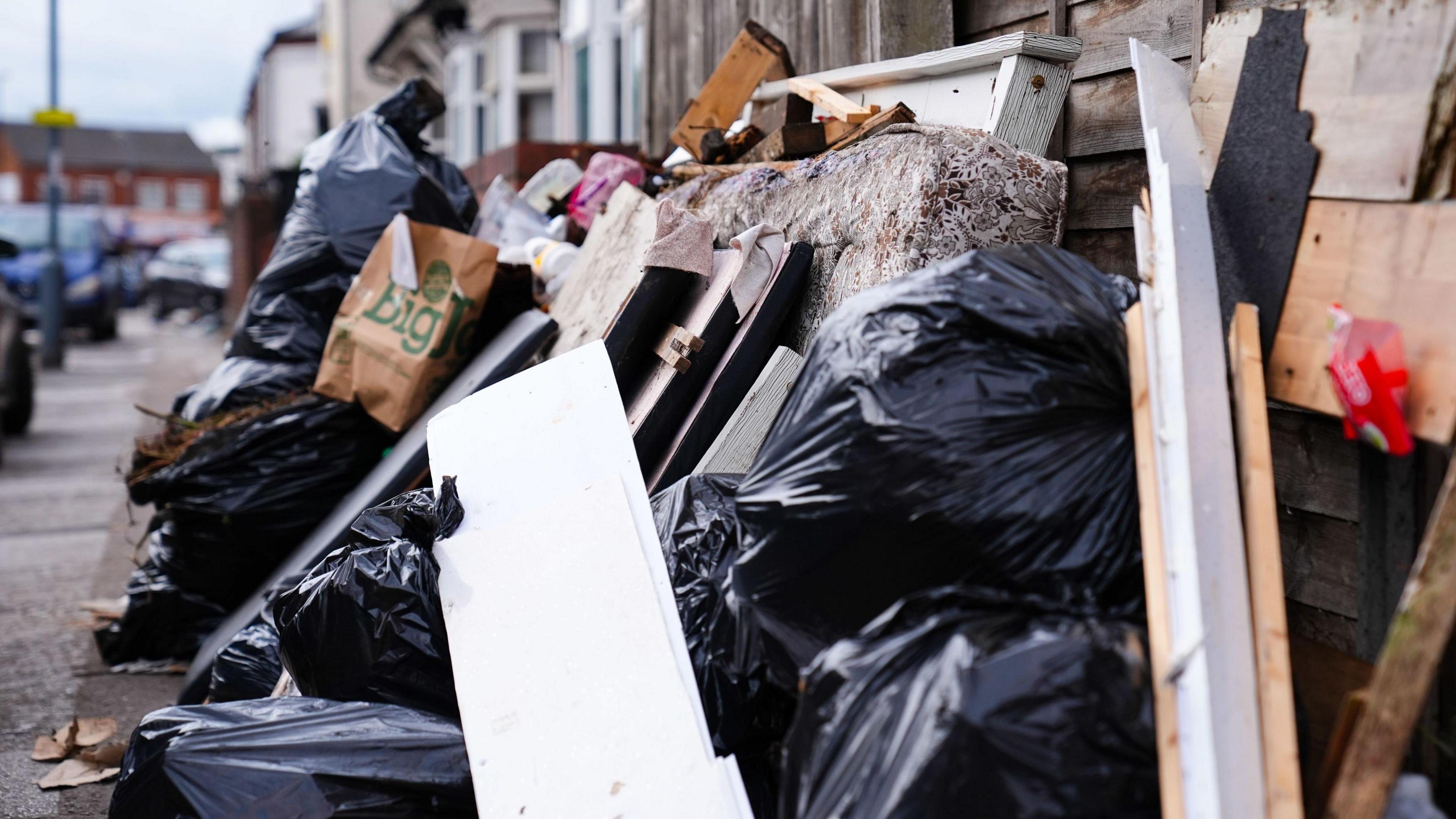
- Published25 July
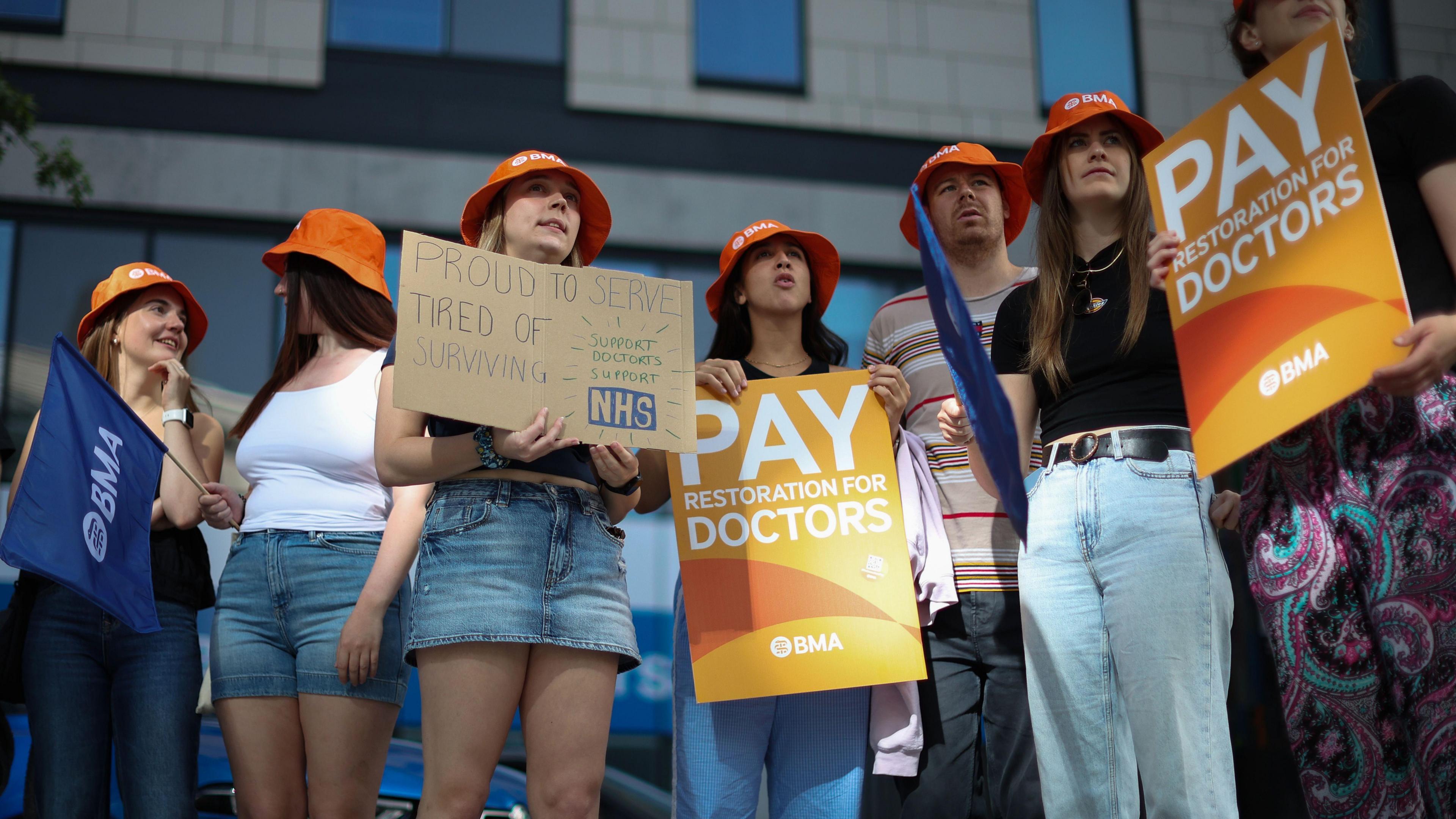
- Published26 August 2022
